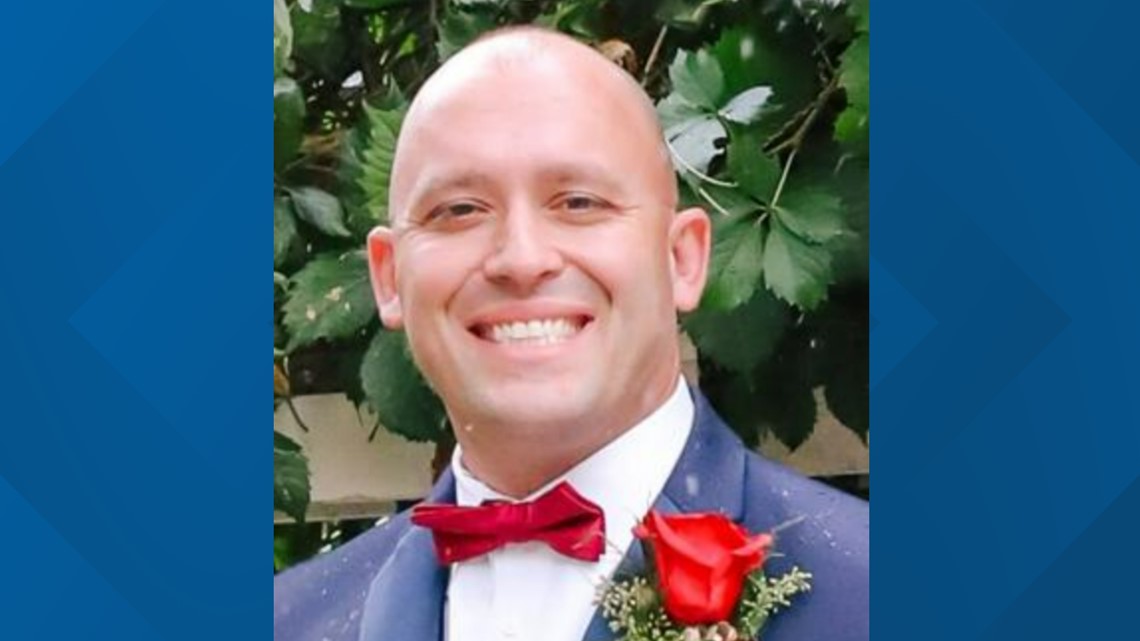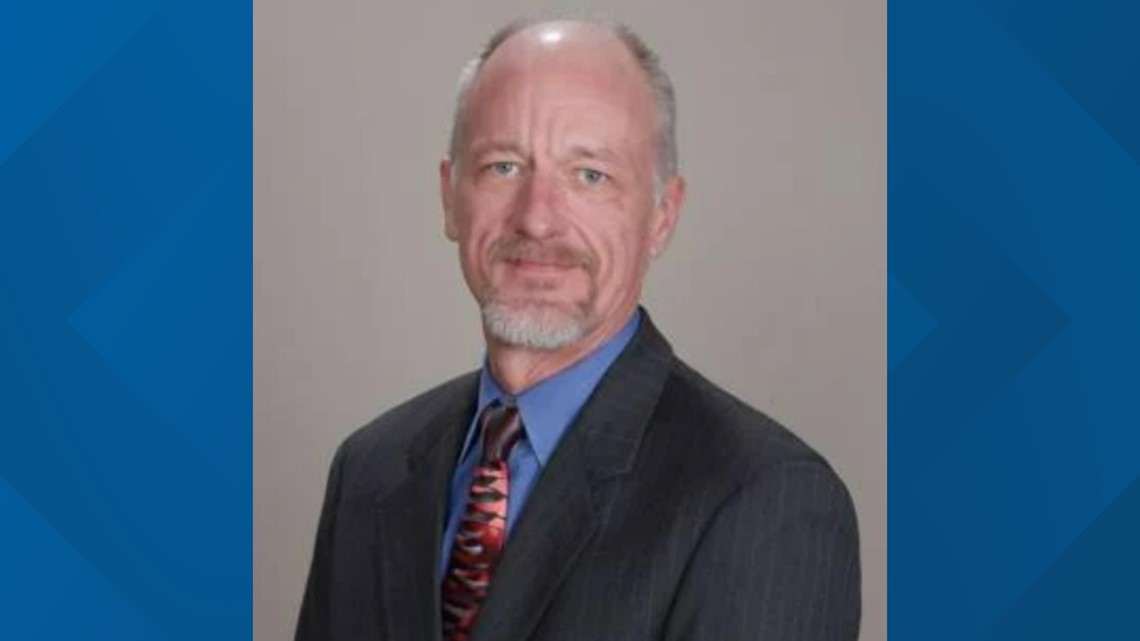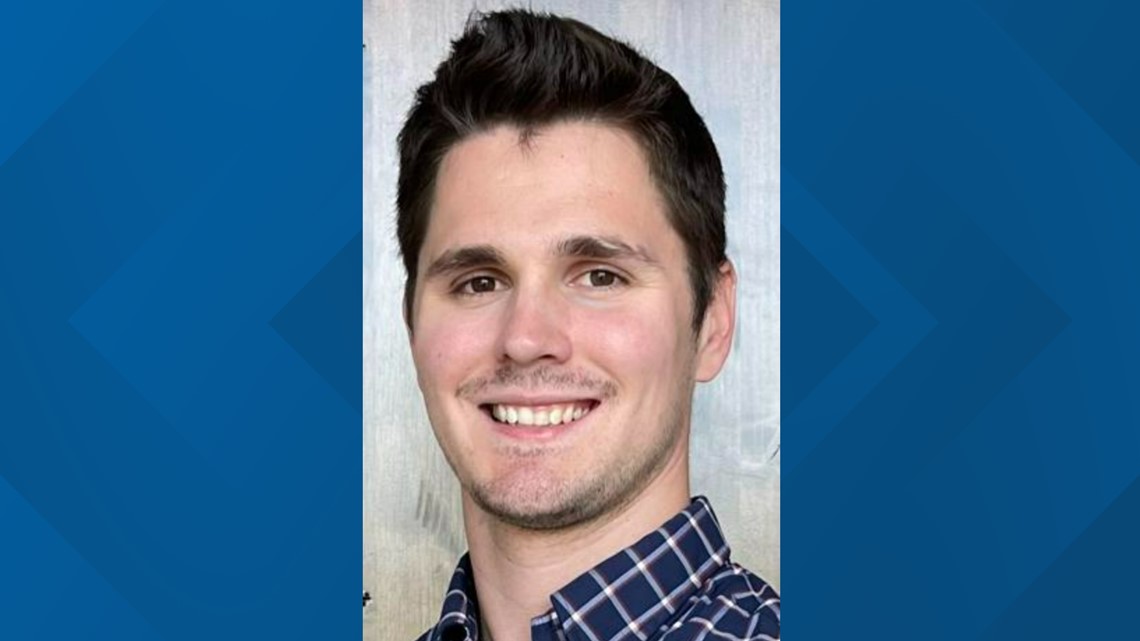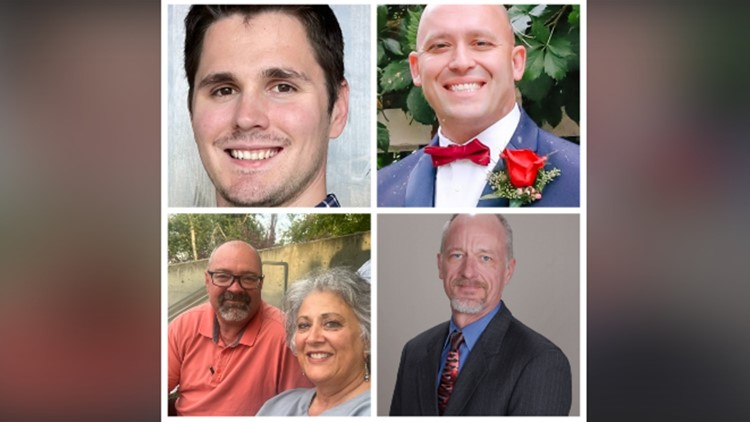CALDWELL, Idaho — This article originally appeared in the Idaho Press.
Caldwell City Councilmember John McGee will not be seeking an additional term for the city’s sixth city council seat, opening the at-large seat to a handful of hopefuls.
Mike Dittenber, Eric Phillips, Scott Tilmant, and Dave Larson filed to run for the seat. Because the city of Caldwell’s population is under 100,000 people, any candidate can run for any seat, and voters can select a single candidate in each race.
McGee told the Idaho Press that he was proud of his 12 years in elective office, but after turning 50, he is ready to focus on spending more time with his family, continuing work on his public relations and marketing business, and leadership in his church.
“I’m most grateful that the people of Caldwell gave me a second chance after I messed up 12 years ago,” McGee said. “It speaks volumes to the grace and maturity of the people of Caldwell.”
Below are highlights from the Idaho Press’ conversations with the candidates for seat 6.
MIKE DITTENBER: EMPLOYEE RETENTION, AFFORDABLE HOUSING, TRANSPARENCY
Dittenber is the executive director for the Caldwell Housing Authority. He said he has ample experience with government processes, including working for the Idaho Housing and Finance Association, and as a law enforcement planner with the city of Boise’s police department.
“It came to a point in my life where I thought, ‘how do I give to the community?’” he said. “‘How do I impart some of my experience over the last 33 years?’ And I think it’s time for me to run for city council.”
The growth of the city is proof that many things are going well, he said. However, there is room for improvement, he said. For example, prioritizing employee retention would help the city be more proactive on improvements and facilitate the creation of a new comprehensive plan for the city that would specify where development should occur.


The last comprehensive plan is 10 years old and needs to be updated, he said. He does not believe a moratorium is a tool that should be used at this time.
While Dittenber believes all kinds of housing are needed, he is particularly interested in shaping zoning ordinances to facilitate the construction of housing that is attainable for middle-income residents.
“Affordable housing is a buzzword, so-to-speak, but we have people who are growing up in this community, who are going to school in this community, who will graduate from high school and will graduate from college, and won’t be able to afford a house where they grew up,” he said.
He would also like to see more transparency about the origin of development projects, whether it comes from citizens working with city staff, is initiated by staff, or by developers.
Part of his work with the Caldwell Housing Authority has involved “financially separating from the government so we can focus on local housing priorities rather than national housing priorities.”
If elected, “maybe there’s an opportunity for me to bring some of that innovative, creative nature to the city,” he said.
ERIC PHILLIPS: INFRASTRUCTURE, QUALITY OF LIFE, EMERGENCY SERVICES
Phillips works as the director of student safety and emergency operations for the Caldwell School District. He comes to that role from a career in the Navy and as a police officer, including working as a student resource officer for the district.
If elected to the council, Phillips would like to focus on building infrastructure that improves safety and quality of life for people in Caldwell.
With 9,000-10,000 residences already slated for development that could potentially bring another 30,000 residents, the city should be investing more in infrastructure and emergency services to meet the demand, he said.
“I’m not against growth, but it must be smart, manageable growth that can allow us to keep up and not jeopardize the safety of our citizens,” he said.
Phillips said he is concerned about a lack of housing and access to basic amenities, like the city pool. Though the facility is now slated for repairs, Phillips said the city could have done more earlier to address the issues.


“It shouldn’t have taken an election year to bring that more into focus … I believe it should have been brought up much sooner instead of waiting until people are basically beating down the door through anger to get that to happen,” he said.
Phillips said his experience working for multiple different government entities, including the Navy and the city’s police department, and his work on its traffic commission, has prepared him for the role.
“I feel that all of that combined helps me be a quality candidate that’ll be able to fight for the safety and security of our citizens and the future of Caldwell as a whole.”
As a police officer with the city, Phillips said he interacted with a wide swath of Caldwell residents and the everyday challenges they face. He would like to see housing costs come down in the city.
“We have to focus on bringing housing prices down, but doing it in a way that’s not going to jeopardize the safety of our citizens,” he said, “so people don’t have to decide between replacing a window or buying medicine, or putting food on the table, or buying clothes for their kids, or giving them a mattress.”
SCOTT TILMANT: MANAGING GROWTH, PUBLIC SAFETY
Tilmant said his career in construction would bring a needed perspective to the city council.
He would like to see the city update its comprehensive plan to reduce the amount of rezoning applications heard by the city. When city council members question rezoning, they are outvoted, he said.
“I’m trying to at least aid in their voice on the other side to say, ‘can we take a step back and actually redo the (comprehensive) plan based on what has been rezoned, and then stick to it?’” he said. “Where is the city going? What are we actually trying to do?”
Water issues are a concern when planning for growth, Tilmant said. For example, if a multifamily development is built instead of a single-family home, he worries that would use more water than a single-family home.


Tilmant said he feels conflicted about moratoriums. On one hand, it could offer a pause for development, but it hurts retiring farmers or older folks who would like to sell land because there are no buyers coming in.
He is also concerned about funding public safety, noting Police Chief Rex Ingram’s comments that the city’s police officers are underpaid compared to the Nampa Police Department and the Canyon County Sheriff’s Office, despite a raise earlier this year.
The national standard is having one officer per 1,000 residents, but the city also falls short of that metric, he said.
He approves of Ingram and the new fire chief, Rick Frawley, and would like to direct more of the city’s resources to their departments.
“I would love to try to support them more to try to get them what they need because they are so far behind.”
DAVE LARSON: GUIDING GROWTH, AIRPORT DEVELOPMENT
Larson currently serves on the city’s planning and zoning commission. If elected to city council, he would focus on continuing to guide the city’s growth.
He would like to see healthy growth in areas of the city apart from the downtown core.
“I want to help the rest of Caldwell keep developing because we have a lot of land, and I want it to stay good and not make poor decisions that could affect future generations with the decisions we make now,” Larson said.


Caldwell is the 14th-fastest-growing city in the nation, and the city needs to be conscientious about where growth happens without pricing out residents, he said.
Larson said he personally knows friends and family who can’t afford to buy a house. He thinks adjusting the zoning code could give developers some more flexibility. For example, R-1 zoning is for three units per acre, R-2 allows four units per acre, while R-3 jumps to 25 units per acre, which he called “astronomical.”
“There’s some room for development on how we could change that to develop smaller middle-sized houses instead of apartments, and they don’t always have to be attached or detached,” he said.
While he believes growth is good, he also does not want to see the area “turn into Chicago or Detroit,” noting that few people are aware that Detroit used to be known for its train station.
“Things can deteriorate really quickly if there’s not forethought and consciousness on, ‘hey, we need to do this very carefully so that everyone prospers,” he said.
He would also like to see the airport secure federal funding for a tower, and to work with Valley Regional Transit on improving the city’s public transportation.
This article originally appeared in the Idaho Press, read more on IdahoPress.com.
Watch more Local News:
See the latest news from around the Treasure Valley and the Gem State in our YouTube playlist:
HERE ARE MORE WAYS TO GET NEWS FROM KTVB:
Download the KTVB News Mobile App
Apple iOS: Click here to download
Google Play: Click here to download
Watch news reports for FREE on YouTube: KTVB YouTube channel
Stream Live for FREE on ROKU: Add the channel from the ROKU store or by searching 'KTVB'.
Stream Live for FREE on FIRE TV: Search ‘KTVB’ and click ‘Get’ to download.



